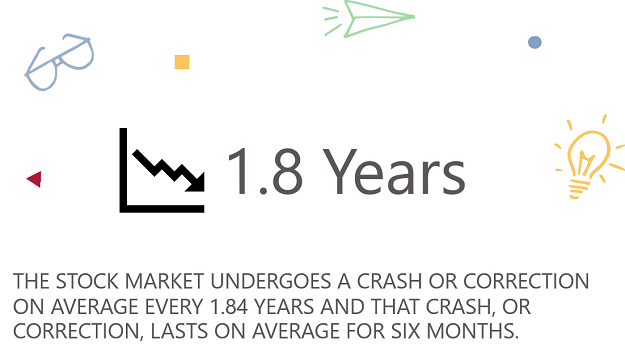There will always be a certain measure of risk associated with stock markets. It’s the nature of the beast and therefore unavoidable – there are ups and there are downs, and the spikes in either direction can be extreme.
When that movement is in the desired direction, that means good times for shareholders, but what goes up will inevitably at some point come down, and sharp downward movement can herald a stock market correction or even a full-on crash – officially measured as a decline of 10% from a recent closing high. Again, this too is inevitable; corrections or crashes happen, and when they do it will have implications for employee share ownership plans (ESOPs).
This has created a situation in which many companies and employees are grappling with the reality of underwater stock options – options where the initial strike price exceeds the current market value. What that means is that anyone looking to exercise their options would have to pay more for the shares than the actual trading price. Unsurprisingly, participants will not want to exercise options while that is the case.
Stock market volatility and ESOPs
ESOPs (employee stock ownership plans) can work brilliantly for both employers and employees. For employers, they get a more motivated workforce and the likelihood of greater retention of key staff. For employees, there can be an increased sense of ownership and a clear connection made between their own individual performance, how the company fares, and the financial rewards they can hope to accrue down the line.
However, there are potential downsides too, and stock market volatility is one of them. The nature of ESOPs being what it is, employees can find themselves overexposed to the company’s shares. That won’t necessarily be a problem if those shares are performing well, but in the event of a stock market correction or crash, that share price may plummet, which would have a negative effect on the value of those shares.
When stock options are underwater, it’s undoubtedly a negative turn of events for those holding the options. However, it isn’t necessarily going to be a catastrophe.
So, what should you do if you’re managing an employee share plan and there’s been a stock market dip, or even crash?
What should you do with your employee share plan when there’s been a stock market dip?
With ESOPs, it is helpful to think in terms of the long game. While it’s great if the company share price is higher than the price set down on day one, unless your shares are due to vest and you intend to sell immediately, it is little more than a pleasing snapshot. It may make you (and all the participants) happy at that moment, but it doesn’t concretely mean anything.

The same applies when the share price is below the strike price. At that point, you have underwater stock options, but if they’re not scheduled to be vested in the short-term, then, beyond the unpleasantness of knowing that you’re not in the money at that moment, it may not be a full-on disaster.
It is easy for someone not directly affected to advise patience, but if a share price is at an artificial low, it is reasonable to expect that it will recover at least somewhat over time, although the use of “somewhat” and “overtime” gets to the heart of the matter, in that how much it will recover by and how long that will take are key considerations. However, today’s underwater stock may not be the underwater stock tomorrow or next week, and that is always worth keeping in mind.
Reprice stock options
Depending upon the circumstances, the long game may or may not be practical and the stock market correction is so pronounced that substantial losses are inevitable. Another approach to look at in that scenario is repricing the options intending to restore at least some of the lost value.
This can be a practical response from the company perspective. Underwater stock options no longer incentivise or retain employees, and against this backdrop, companies are encouraged to consider mitigating these undesirable consequences through stock option repricing.
However, repricing stock options isn’t necessarily a straightforward process. It will usually require shareholder approval and will be also scrutinised by bodies such as Institutional Shareholder Services, partly to ensure that what is proposed is not a cynical measure designed to secure a short-term gain.
Stay on the course
Stock crashes are a relatively rare occurrence, but no less traumatic than when they happen. Share prices will take a battering across the board in a crash, with this seeing many previously in-the-money stock options becoming underwater stock options. Looking to batten down the hatches and stay the course may feel like a viable response, but in other instances, companies may look at repricing stock options to restore their power as an incentive for excellent performance and retention.
Contact Global Shares today to speak to our share plan experts on how best to manage your equity compensation needs.
To read more about share plans and how we can work with you, please click here.
This publication contains general information only and J.P. Morgan Workplace Solutions is not, through this article, issuing any advice, be it legal, financial, tax-related, business-related, professional or other. J.P. Morgan Workplace Solutions’ Insights is not a substitute for professional advice and should not be used as such. J.P. Morgan Workplace Solutions does not assume any liability for reliance on the information provided herein.



